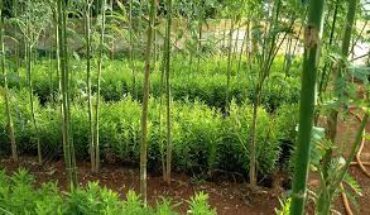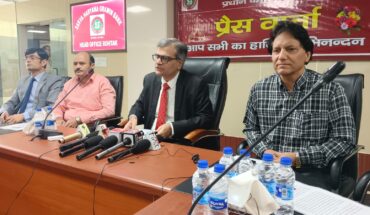-SATISH HANDA
Nearly 40% drop in production has been identified in country’s biggest non-leather footwear industry hub at Bahadurgarh in Haryana due to shortage as well as heavy rise in the rates of basic raw material used in footwear industry. Pawan Jain President of United Footwear Manufacturing Industry Association Bahadurgarh told that due to severe power crisis in China most of industrial units have either been closed down or running at 25-40% of their production capacity as such there is no import of basic raw material and chemicals used manufacturing non-leather footwear from China and stockists in the country having stocks of raw material including Ethylene Vinyl Acetate (EVA), Poly Urathine (PU), Raxine, thread and chemicals have increased rates two to three times in recent past some time due to ban over export from China.
Jain said, Bahadurgarh footwear industry known all over in the world has been badly affected since past over 18 months due to KOVID-19 followed by farmers agitation in the country since past over 10 months blocked all roads in the area as a result large number of manufacturing units had to suffer heavy business loss. He said, large number manufacturing units became sick had to close down their shutters unable to bear heavy financial loss and large number of workers employed in footwear industry became jobless.
Jain said, as a result of non-availability of basic raw material and drastically increase in rates of raw material used in non-leather footwear industry majority of manufacturing units are using hardly 30-40% of their manufacturing capacity because of higher production cost are unable to get orders from buyers on increased rates. He said, EVA earlier available at the rate Rs 125 per kg is now available at the rate Rs 300 per kg, the price of PU was earlier available at the rate Rs 130 per kg has also increased to Rs 300 per kg, the price of Raxine has increased from Rs 110 to Rs 180 per kg, the rate of thread too increased from Rs 165 to Rs 300 per kg and rates of chemicals has also been increased by hundred percent in past couple of months and the material is not available even at higher rates.





